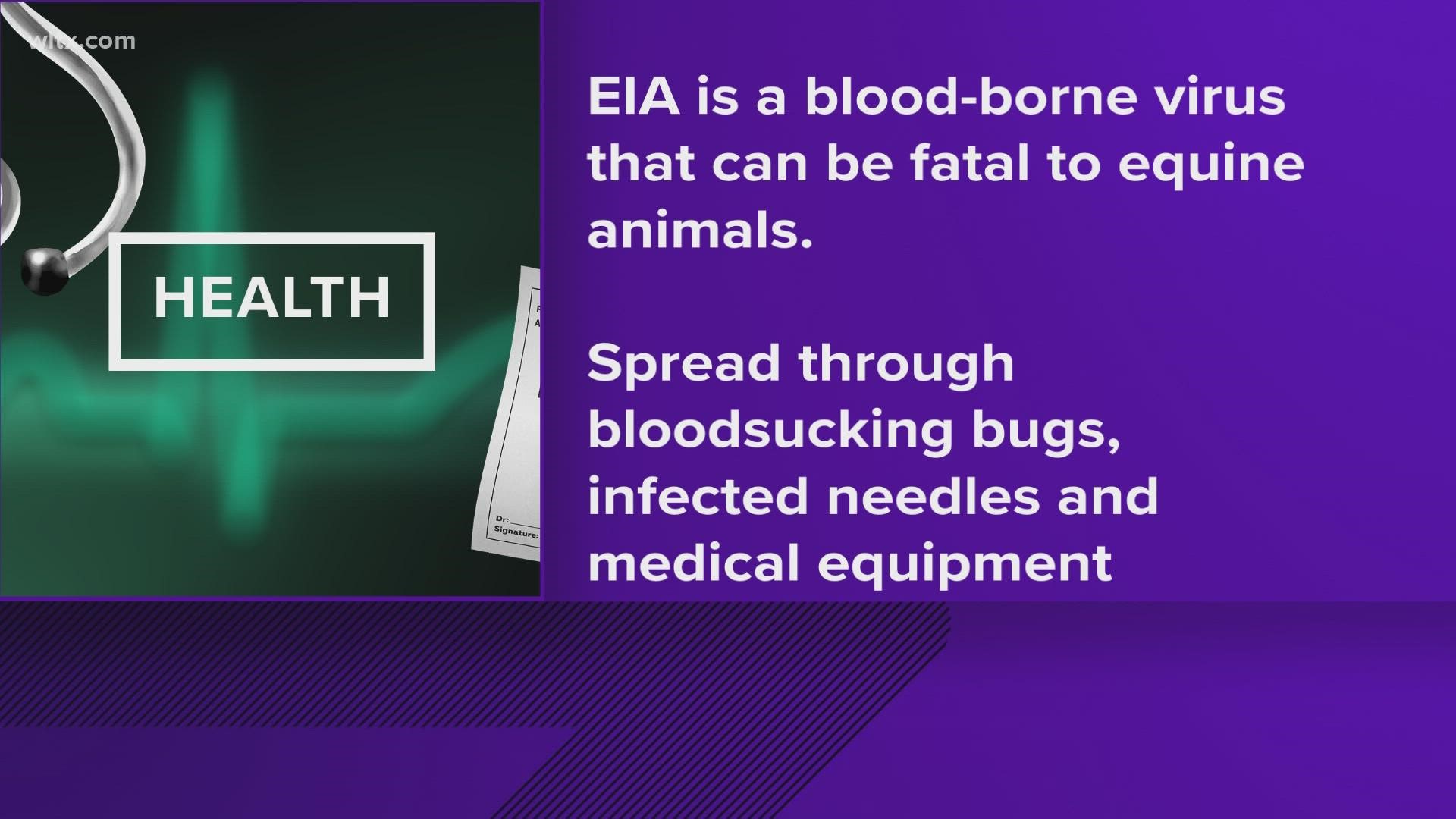COLUMBIA, S.C. — An infection that can pose a serious risk to horses - and even lead to their death - has been reported in two South Carolina counties.
According to Clemson Extension, horses with equine infectious anemia (EIA) were found in Berkeley and Barnwell Counties. The quarter horse in Berkeley County has already been euthanized and authorities are still determining options for the two in Barnwell.
Authorities said this is the first time the illness has been found in South Carolina since 2014.
Clemson Extension describes the illness as blood-borne and not a danger to humans but potentially fatal to horses and other equine species. It's often spread by bloodsucking insects but can also be spread through infected needles or other medical, dental, or tattoo equipment.
According to State Veterinarian Michael Neault, there is no treatment for EIA so animals that don't die from the disease become a life-long carriers that either must remain in lifelong isolation or be euthanized.
The seriousness of the disease is one reason why a special test that checks for EIA antibodies, the Coggins test, is required for animals that travel between states and even to in-state gatherings.
Clemson Extension reports that this is especially important for houses that are housed in a boarding facility. The disease is also classified as a "reportable animal disease" in all 50 U.S. states, meaning any lab that finds a positive case must report it to state or federal animal health officials within two days.
Detecting EIA without a test can be difficult since the symptoms can be similar to other equine illnesses.
However, they can range from fever and decreased appetite to severe anemia and sudden death. Some of the more serious symptoms among severely affected horses may include weakness, depression, and other signs like jaundice, rapid breathing, and elevated heart rate. Other symptoms include swelling of limbs, thrombocytopenia, red or purple spots on mucous membranes, bleeding from the nose, or blood-stained feces. Anemia also occurs often in chronically infected animals.
For those who have an infected horse, the USDA has several tips that include:
- Separating the symptomatic horse from others and contacting a veterinarian immediately
- Keeping the area in and around your barn clean and dry to reduce the insect population.
- Applying fly sprays and insect repellants as needed.
- Only using sterile needles and licensed blood products; never reuse needles or syringes.
- Using a sterile needle each time you puncture a multi-dose medication bottle.
- Not sharing surgical or dental equipment that are contaminated with blood or debris between horses.
- Allowing only licensed veterinarians using blood from confirmed EIA-negative donor horses to perform blood transfusions.
- Disinfecting bits and lip chains between horses.
- Cleaning and cover open wounds.
- Testing every horse at least annually.
- Requiring proof of a recent negative EIA test for new horses entering the premises or when purchasing a new horse.

